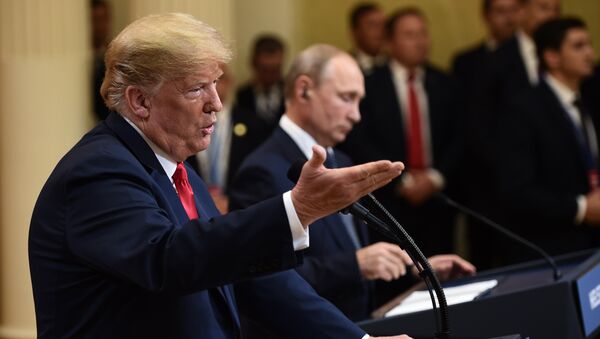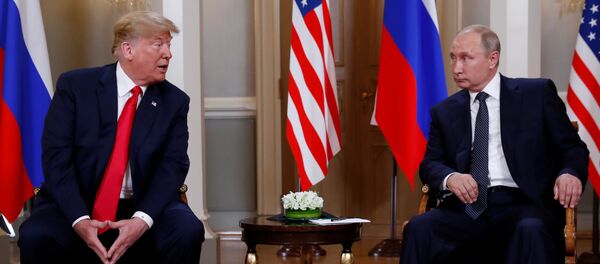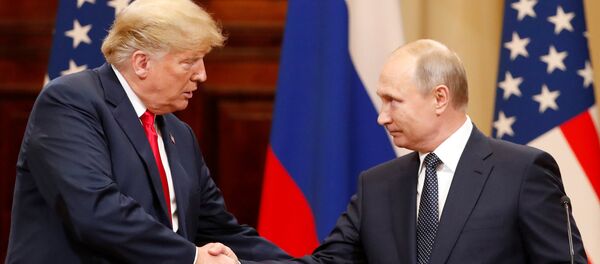At the Helsinki summit and press conference on Monday, Russian President Vladimir Putin said after his talks with US leader Donald Trump that Moscow had passed to the United States its own proposals for joint cooperation on the non-proliferation of weapons of mass destruction (WMDs).
Russia also proposed that Moscow and Washington re-establish a working group on counter-terrorism, Putin said. He also proposed that Russia and the United States could have the leading roles in helping resolve the humanitarian crisis in Syria.
Reducing Risk
Retired US Army Major and historian Todd Pierce said the new proposals can reduce the risk of a global war if Washington can abandon its tendency to overthrow governments it does not like.
"Any cooperation by these two nuclear armed countries will be of benefit to the world if it reduces the likelihood of a war and right now, that risk is greater coming from US ultra-militarists," Pierce told Sputnik on Monday. "The beginning of a joint anti-terror [working group] would have to be a commitment by the US to renounce ‘regime change’ as a foreign policy."
"If Russia puts the brakes on another US war, there will be less terrorism… so that would be a successful anti-terror Initiative in itself," he said.
Although Trump was seeking a constructive tone in his talks with Putin, he has a track record already of fueling global tensions including by withdrawing from the Iran nuclear agreement.
"Trump with his close friend [Israeli Prime Minister Benjamin] Netanyahu gives one little hope that will change with what is evidence of even more aggression against Iran," he said.
However, the prospective of improved relations and growing, renewed détente between the United States and Russia could act as a restraining influence on Washington’s militarist impulses, thereby reducing the main driving force fanning the growth of international terror, Pierce explained.
Reason for Optimism
Retired US Army officer and historian Colonel Doug Macgregor told Sputnik that the Helsinki meeting had been an important and constructive step forward.
"Despite the opposition from the Washington swamp, President Trump's meeting with President Putin signals reason for optimism," he said.
"As for the future there is serious interest in seeking common ground with the understanding that areas of divergent strategic interest will remain, but need not present insurmountable obstacles to future cooperation," Macgregor said.
Trump and Putin both labeled the talks as highly "successful," "productive" and essential for improving the ties between the countries. Putin added that it was only a first step, although important.



